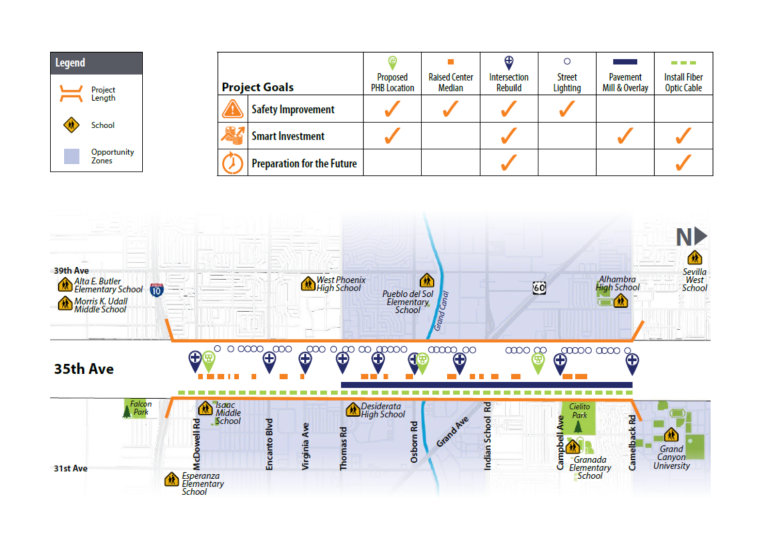By Rebekah Morris for AZBEX

On September 30, 2025, the U.S. Department of Transportation issued an Interim Final Ruling that de-certifies all current Disadvantaged Business Enterprises and Airport Concessions DBE, taking effect October 3, 2025.
Since then, eight active bid projects have been delayed and small businesses—along with municipalities responsible for administering the program—have been left wondering what to do next.
Specifically, all DBE and ACDBE firms are effectively decertified. The prior race- and gender-based presumptions of disadvantage are no longer in place. In other words, race and/or gender no longer automatically count as proof of disadvantage.
To remain in the program, every certified owner must submit a Personal Narrative and current Personal Net Worth statement. The certifying agencies must then evaluate the resubmitted applications and make a determination of disadvantaged status.
It is important to note that the USDOT gave no guidance for what would qualify a firm as disadvantaged, but it has clearly placed the responsibility for identifying disadvantaged status on the certifying agency.
Arizona Projects Impacted
Projects impacted by this IFR include federally funded transportation and aviation projects. Not all transportation projects include federal funds that come with these project requirements.
As of October 20, BEX is counting eight Arizona Department of Transportation projects that have due dates extended specifically due to this rule change.
The City of Phoenix has one current active bid project with a DBE Goal – the 35th Avenue Safety Corridor – which bids 10/28/25. A question from the bidders regarding the DBE goal has not yet been answered as of press time.
Speaking with primes and subcontractors who pursue ADOT work, the schedule impact is significant. Small firms are impacted most when they are pursuing fewer ADOT projects and they base estimating and craft labor workload projections on specific bid dates. Large firms are likewise shuffling estimating staff and workload to respond to bid due date changes.
Agencies Response to Date
Only three agencies in Arizona are certifying agencies: ADOT, Cityof Phoenix and City of Tucson. The response from each has been:
- ADOT has provided guidance for contracts in place, contracts pending and active bid projects.
- City of Phoenix responded to questions regarding this issue stating, “While existing contracts are not affected, DBE participation cannot currently be counted toward project goals until firms are reevaluated under the new certification standards. The City is reviewing all solicitations to ensure compliance with the new federal requirements and will provide updates as guidance evolves.”
- The City of Tucson has updated its webpage to state it will only be advancing SBE contract goals that remain race and gender neutral.
Sudden Changes to the Program Adds Uncertainty
Typically, when big changes to long-standing federal programs happen, they are a result of a very long, drawn out, slow and methodical process. Impacted stakeholders—such as currently certified DBE firms, prime consultants and contractors who pursue projects with DBE goals, and agencies that are responsible for administering and reporting on project compliance—would normally have an opportunity to provide input and ideas on how to make the final rule most effective and practical. That did not happen with this IFR.
Instead, section III of the IFR states “The Administrative Procedure Act generally requires agencies to provide the public with notice of proposed rulemaking and an opportunity to comment prior to publication of a substantive rule. However, 5 U.S.C. 553(b)(B) authorizes agencies to publish a final rule without first seeking public comment on a proposed rule ‘when the agency for good cause finds (and incorporates the finding and a brief statement of reasons therefor in the rules issued) that notice and public procedure thereon are impracticable, unnecessary, or contrary to the public interest.’ DOT finds that providing advance notice and an opportunity to comment on these regulatory changes pertaining to the DBE and ACDBE programs would be impracticable, unnecessary, and contrary to the public interest.”
The IFR gives no criteria on what would qualify a firm as disadvantaged, aside from the statement that it must “demonstrate social and economic disadvantage based on their own experiences and circumstances without reliance in whole or in part on race or sex.”
What to Look for Next
According to a statement from ADOT, “Until the reevaluation process is completed, recipients of federal transportation funds including ADOT and all subrecipients, may not update their overall goal, set any contract DBE goals on federally funded projects or count any DBE participation toward DBE goals.”
Looking further down the road, the federal DBE program is tied to the surface and aviation authorization, the most recent being part of the broad Infrastructure Investment and Jobs Act of 2021. This expires September 30, 2026. If the DBE program continues in any form, it will need to be part of the next reauthorization.
Lastly, there is a 30-day public comment period open. Interested parties may submit their comments here by Nov. 3.

